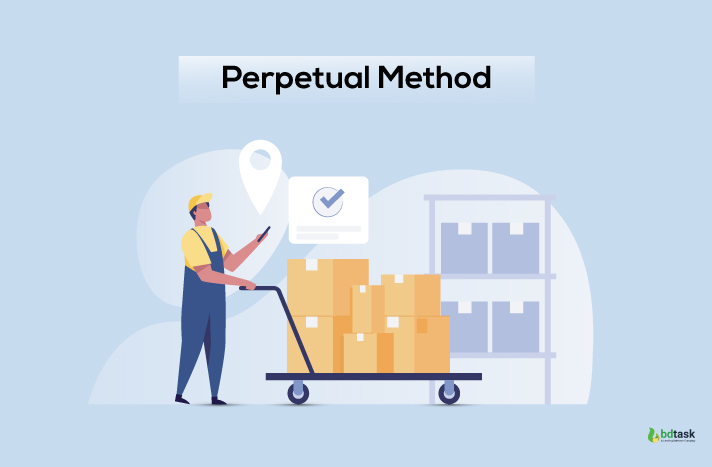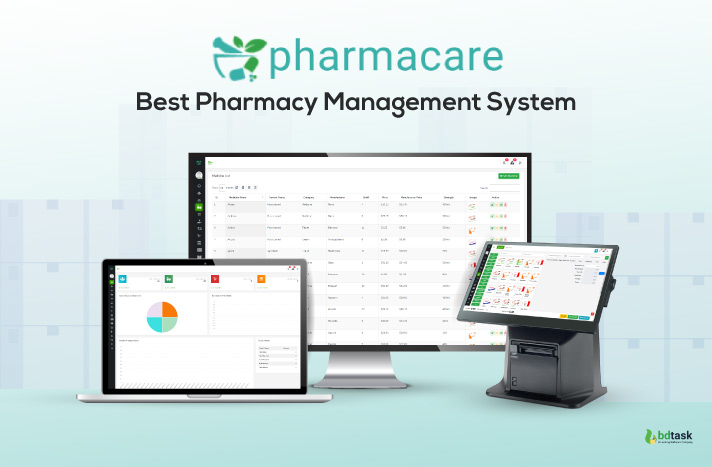What Is Inventory In Pharmacy? Highlighting Key Points

Certainly, "inventory" or "stock" is a significant factor in any business and, at the same time, proper maintenance of all the inventory you store in your warehouse. "Inventory" is like a fixed asset of your business, which you will sell and make revenue for your business.
Through this blog, we'll discuss & explore some crucially highlighting points of the "necessity of inventory management system in a pharmacy."
However, if you ask, "what is inventory in a pharmacy?" I would say, for the pharmacy industry, "inventory" is "medicine," "drug," "pharmaceutical raw material," and any machinery related to medical purposes.
Yet, another major issue a pharmacy entrepreneur strictly faces is the proper maintenance & tracking of pharmaceutical inventory. Because pharmacy inventory is a majorly perishable item and needs a proper temperature, storage environment, or warehouse to store them.
Moreover, another crucial part that a pharmacy entrepreneur must maintain is the availability of the hand-on-stock, how much & when to replenish the forecasted stock to avoid any over or out-of-inventory situation.
What Is Inventory In Pharmacy?-Let’s Explore To The Core
An "inventory in pharmacy" is nothing but "pharmaceutical products & equipment" needed for medical purposes. And these "pharmaceutical products & equipment" will be showcased on pharmacies' shelves, available for sale or in usable condition.
One of the major drawbacks that most pharmacists face is tracking the "over/under stock" and the medical products' expiry date.
However, it's better to maintain a balance between demand and supply and resist being over and under stock because keeping too much stock might end up in "waste" and "lose the expiry date." Besides, maintaining understock might push you to lose opportunities to sell and generate customer dissatisfaction.
Therefore, an effective and automated inventory management system in your pharmacy is necessary. Only an automated inventory management system provides you with a visual
Wherefore!!
- Accurate organization of inventory levels
- Eliminate the confusion of understock/overstock situation
- Recording quantities based on locations
- Track the per-inventory demand
4 Types Of Inventory In Pharmacy
Inventory in pharmacy conveys maintaining a sustainable balance in demand and supply of pharmacy inventory.
Besides, a major part of pharmacy inventory management involves correctly maintaining the inventory level through understanding & forecasting the demand of every particular medicine.
The crucial reason behind maintaining such a tight inventory management policy in the pharmacy industry is that pharmacy inventory is perishable items, which have very short lives and are handled & stored with care. In addition, thoroughly maintaining such a strict inventory management policy improves the operating cost and reduces procurement and warehouse costs.
Apart from general tips on better ways to manage the inventory in a pharmacy, there are 4 types of pharmacy inventory management methods to calculate the ROI.
-
Visual Method

When a pharmacist visually checks and compares the on-hand stock with a listing of the number of products that should be shelved.
After the visual verification, the pharmacist will place a purchasing order if the inventory number exceeds the required listed level.
-
Periodic Method

Pharmacists will count the stock and compare it against the product list and quality in regular periods of time. And if there's any shortage, the pharmacist will issue a "purchase order" for that particular product.
-
Perpetual Method

The perpetual inventory management method is considered efficient for managing pharmacy inventory. The Pharmacy management system will keep a record of all the inventory on hand. Whenever any sale occurs, the number of products will automatically be reduced from the pharmacy inventory level.
-
Hybrid Method

This method is a mixture of the above 3 methods. Pharmacists will maintain an "annual physical count" simultaneously maintaining a pharmacy management system.
The pharmacist will compare the product quantity on shelves against the system. This method can assist pharmacists in understanding the supply and demand fluctuations and then verifying the quantity inventory level.
Why Does A Pharmacy Need An Inventory Management System?
Of course, an inventory management system in a pharmacy is absolutely necessary because only an effective Inventory management system can assist a pharmacist in keeping track of the medicine stock level and the demand for a particular medicine and track the expiry date.
An inventory management system stores all the on-hand stock, the quantity stored on shelves, and the amount stored in the warehouse. Moreover also record the distributor's details, the schedule of their product delivery, customer details, and many more.
In Addition, There Are Some Major Benefit Of Using an Inventory Management System In a Pharmacy
- Reduce the replenishment cost
- Enhance operational efficiency
- Avoid being over & under stock
- Follow a vertical storage system
- Strictly track the expiry date
- Get a clear visuality of the stock level
- Automated generated monthly/yearly report
Role Of A Pharmacist In Inventory Management
A pharmacist is the main human resource who continuously stays and runs the operation of each and every pharmaceutical work required. With the rise of pharmacy ecommerce, their role has become even more essential in ensuring efficient operations.
Usually, a pharmacist can be a “healthcare degree holder” or “paid human resource with no pharmacy degree” but is trained to handle, prescribe, and dispense medication to customers.
The role of a pharmacist in inventory management is to ensure the medicine stock level, prescribe medicine whichever is suitable for the patient, and supervise the medicine expiry date.
7 Effective Tips To Micro-manage Inventory In Pharmacy
Indeed, inventory management in a pharmacy is an important task that a pharmacist needs to handle sorely. Effectiveness in managing the “pharmacy inventory” will result in better cash flow and a better trace of stock level and expiry date.
Yes, it’s kind of difficult to look after the stock level regularly; 7 secret tips to micromanage your pharmacy inventory.
- Avoid stock piling excess inventory on shelves
- Keep a sufficient supply of base stock and a good level of safety stock.
- Trace the dead or expired product
- Never compromise with the quality product
- Integrate an automated pharmacy management system
- Deal with multiple suppliers
- Try to build a great engaging relationship with customers
Why Operate Manually?
When You’ve Automated Pharmacy Management System!!
Management software that is specialized to function in a pharmacy. The pharmacy management system provides complete automated technology, assisting a pharmacist in handling inventory methodically, a smart pharmacy billing system, well-planned inventory management, automated motorization of the stock sale, details of multiple suppliers, etc.
A pharmacy management system in a pharmacy transforms the whole manual operational system into intelligent automated technology. Some extraordinary features of the pharmacy management system:
- Medicine Management System
- Customer management system
- Purchase management system
- Inventory management system
- Automated generated monthly/year report (stock, purchase, sales, invoice)
- Employee information management system
- Account management system

Conclusion
Inventory management in pharmacy is important because it involves inventory tracking and efficiently handling the whole operation. Besides, mismanagement in handling medical products might lead to serious health damage to customers.
Efficient management of pharmacy inventory can not only help you reduce the replenishment cost, avoid the over/under the stock of medical equipment, and maintain an ideal supply chain.










